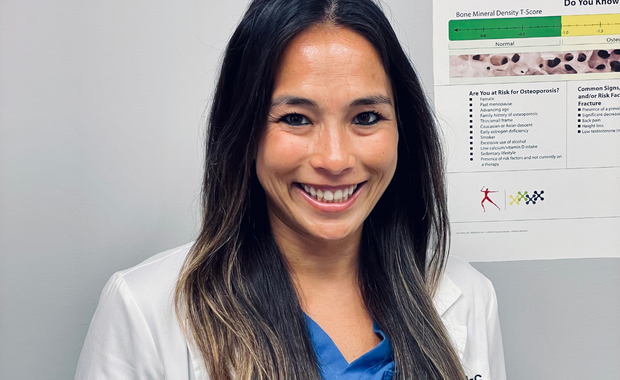Career Resources
Practice Partnership and Ownership
Owning a practice or other healthcare business is complex and can present special challenges for PAs. The following information can help you decide whether practice partnership or ownership is right for you.
Independent Contracting
There are a few key factors to consider when thinking about independent contracting. Read more for tips and considerations for independent contracting.

A Day in the Life of a Rheumatology PA
As a PA practicing in rheumatology, Lindsay Tom, PA-C, treats a wide variety of rheumatology conditions. In this specialty, she helps return quality of life for patients in pain – and her clinical work includes radiology, procedures, and assisting in the infusion suite.
Is Locums work a good option for you?
Practicing in a locum tenens position is a uniquely flexible way to explore a new location, expand your practice, make professional connections, and stay clinically active between longer-term positions.
OB-GYN and Women’s Health Care
Are you passionate about OB-GYN and women’s health care? It is estimated that fewer than 2% of all PAs practice in the field of OB-GYN and its subspecialties – however there is a growing need for PAs in that field due to projected physician shortages, physician burnout, and an increase in maternal mortality in the U.S.
New Grad Financial Blueprint
PAs need to make important financial decisions throughout their careers. Begin your journey towards financial freedom with this financial blueprint for new grads.
Primary Care
Do you want to develop a wide and general medical knowledge? Do you enjoy a fast-paced environment where you will see a variety of patients and cases throughout your shift? Do you want to be able to build relationships with patients over time? Primary Care may be the right specialty for you.
What Every Pre-PA Needs to Know About PA School Interviews
Are you ready to ace your PA school interview? Follow these top tips to help you succeed.
Building Collegial Connections
Relationships are the cornerstone of PA practice. PAs can promote positive connections with colleagues through trust, respect, communication, and clarity.
Emergency Medicine
Do you thrive under pressure, enjoy solving puzzles, and prefer to have a wide range of generalized knowledge? Emergency medicine may be right for you!
Advice for New Grads: Landing Your First PA Job
Looking for your first PA position? Whether you’re a student or a recent graduate – this is your insider guide to networking, negotiating, and finding your passion!
Continuing Medical Education (CME) Optimization
Make the most of your CME budget and learn how to tailor your clinical education to your individual learning style and needs.
Tips for Contract Negotiation, Using the AAPA Salary Report
Every day, PA Career Coach Jennifer Hohman uses the AAPA Salary Report to help her clients negotiate their employment contracts. In this article, Jennifer shares how she leverages the Salary Report for her client’s benefit.

Prepare for the Ins and Outs of Practicing in Orthopaedic Surgery
AAPA’s latest Huddle “Ask Me” session called on four experts to answer questions about starting a career in orthopaedic surgery, practicing in various subspecialties, and which resources will best prepare PAs for success in this popular surgical specialty.
Three Steps for Bouncing Back from Career Setbacks
Career disappointments and setbacks are parts of the professional journey that will happen to almost every PA at some point—and they can feel devastating. In this article I’d like to explore some ideas and approaches for responding to career setbacks so that you not only rebound but return to your practice with greater zest and confidence.